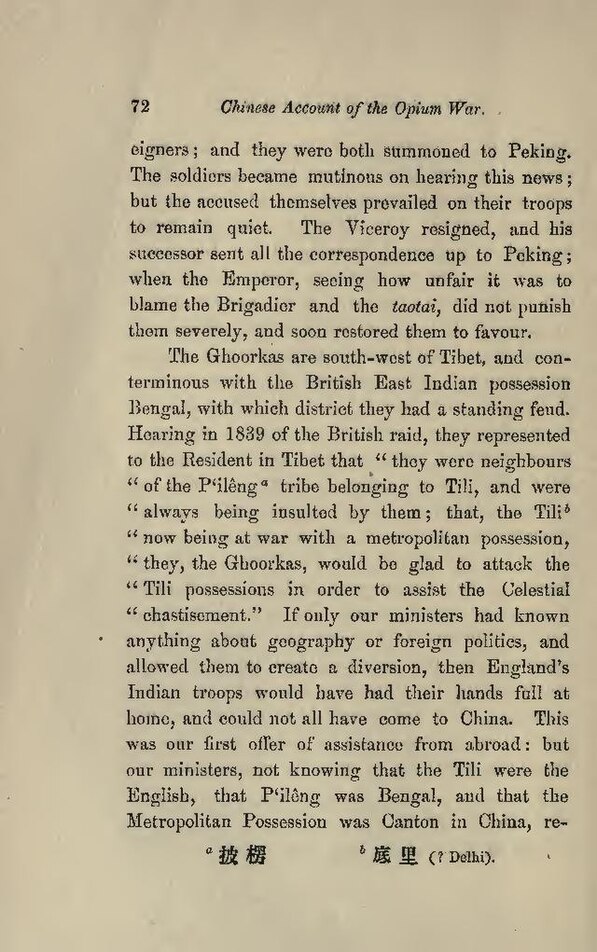eigners; and they were both summoned to Peking. The soldiers became mutinous on hearing this news; but the accused themselves prevailed on their troops to remain quiet. The Viceroy resigned, and his successor sent all the correspondence up to Peking; when the Emperor, seeing how unfair it was to blame the Brigadier and the taotai, did not punish them severely, and soon restored them to favour.
The Ghoorkas are south-west of Tibet, and con- terminous with the British East Indian possession Bengal, with which district they had a standing feud. Hearing in 1839 of the British raid, they represented to the Resident in Tibet that "they were neighbours of the P‘ilêng[1] tribe belonging to Tili, and were always being insulted by them; that, the Tili[2] now being at war with a metropolitan possession, they, the Ghoorkas, would be glad to attack the Tili possessions in order to assist the Celestial chastisement." If only our ministers had known anything about geography or foreign polities, and allowed them to create a diversion, then England's Indian troops would have had their hands full at home, and could not all have come to China. This was our first offer of assistance from abroad: but our ministers, not knowing that the Tili were the English, that P‘ilêng was Bengal, and that the Metropolitan Possession was Canton in China, re-
